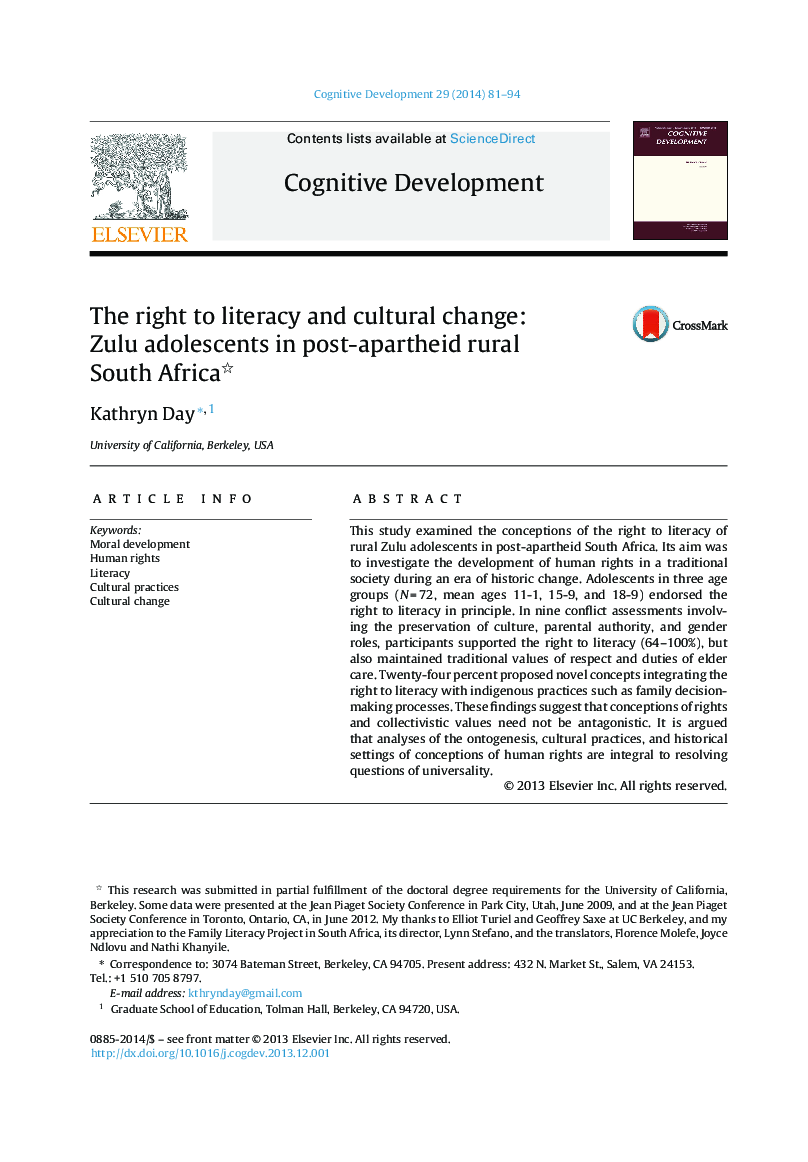| Article ID | Journal | Published Year | Pages | File Type |
|---|---|---|---|---|
| 916509 | Cognitive Development | 2014 | 14 Pages |
•Endorsements by Zulu adolescents of the right to literacy in the abstract: 92–100%.•Endorsements in hypothetical conflicts with traditional values: 64–100%.•Patterns of judgments and adaptations consistent with social domain theory.•Integration of conceptions of a human right into traditional values and practices.
This study examined the conceptions of the right to literacy of rural Zulu adolescents in post-apartheid South Africa. Its aim was to investigate the development of human rights in a traditional society during an era of historic change. Adolescents in three age groups (N = 72, mean ages 11-1, 15-9, and 18-9) endorsed the right to literacy in principle. In nine conflict assessments involving the preservation of culture, parental authority, and gender roles, participants supported the right to literacy (64–100%), but also maintained traditional values of respect and duties of elder care. Twenty-four percent proposed novel concepts integrating the right to literacy with indigenous practices such as family decision-making processes. These findings suggest that conceptions of rights and collectivistic values need not be antagonistic. It is argued that analyses of the ontogenesis, cultural practices, and historical settings of conceptions of human rights are integral to resolving questions of universality.
Graphical abstractFigure optionsDownload full-size imageDownload as PowerPoint slide
